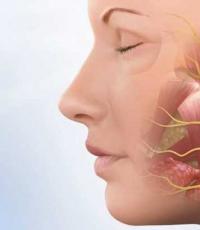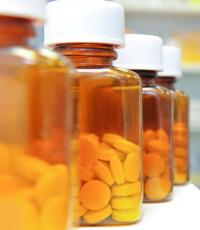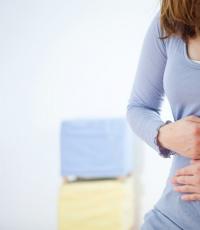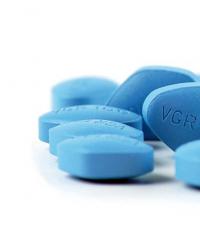Why do you need to drink plenty of fluids when you are sick? How much water should you drink when you are sick. What is the best drink for a cold
First rule for a cold- drink plenty of fluids. But, no matter how tasty the tea is, and no matter how useful the water is, you cannot drink a lot of these drinks.
At the first sign of illness you need to take a hot shower. Try to warm up the face, neck, chest. If your heart allows and there is no high temperature, take a hot bath instead of a shower for 10-15 minutes. It is better to get out of the bath with outside help - you may feel dizzy. Then wipe yourself dry and lie down in bed, wrapped in a blanket, sweat under it for 30-40 minutes. To do this, drink a glass of hot herbal infusion or tea (for example, with raspberries, honey, propolis). By the way, it is worth adding herbal infusion to the bath (for example, birch leaf, St. John's wort, chamomile).
During the day we also advise you to take homeopathic medicines sold in homeopathic pharmacies: lachesis 6 (for sore throat), aconite 6 (at elevated temperature without pronounced inflammation), baptisia 6 (with frequent acute respiratory viral infections with a predominance of watery discharge from the nose), mercury solubilis 6 (with ARVI in a child suffering from exudative-catarrhal diathesis), belladonna 6 (with obvious inflammation of the nasal mucosa, throat, conjunctiva of the eyes, etc.). If you are not allergic, then eat, slowly dissolving, 1-2 teaspoons of honey. One of the best natural antibiotics is garlic (you can just eat a clove or spread garlic on a cracker). And at night, put a piece of propolis on your cheek (if the propolis is real, you will feel some burning and a slight numbness of the tongue).
Thus, we massively act in three directions at once: we activate the protective forces (bath, homeopathy, honey), we remove microbes and their toxic metabolic products (bath, heavy drinking), we destroy microbes (garlic, propolis).
If the body temperature rises after the bath, in no case bring it down. After all, for this you took a bath: with hyperthermia (elevated temperature), it is easier for immune bodies to cope with microorganisms. In general, you need to learn once and for all: temperature is a protective reaction of the body, and you need to bring it down only in extreme cases, namely:
- if the temperature is above 38.5-39 ° С;
- if you do not tolerate even a small temperature;
- if for some reason little fluid enters the body;
- if there is a tendency to convulsions that develop against a background of fever.
With a fever (temperature) Lachesis 6 is especially effective (take 3 peas every 2 hours). Do not abuse antipyretic drugs. You can take them for no more than 5 days and should be washed down with plenty of water.
Do not drink instant effervescent tablets at night - this contributes to the formation of kidney stones. You can bring down the temperature by rubbing the body with vodka or 3% vinegar, half diluted with water. It can be rubbed with ordinary water. Undress for the duration of the procedure, and do not dress immediately after it.
To reduce the temperature, drink tea with raspberries, lime blossom and honey, cranberry and lingonberry juice. Brew an antipyretic drink according to the tea recipe: - 2 tbsp. tablespoons of dry raspberries or raspberry jam, 4 - coltsfoot, 3 - plantain, 2 - oregano.
If a rash appears on the skin, there is no hope that the disease will pass by morning - you need to call a doctor. The same should be done if individual symptoms of the disease clearly do not correspond to the classic version of SARS: there is severe abdominal pain, stools more than 3 times a day, severe headaches, deep cough and chest pain, difficulty swallowing or breathing, nausea or vomiting.
When compiling a diet, pay attention to vitamins A, E and C. A glass of orange juice drunk on an empty stomach will be of great benefit - with pulp, without added sugar. Chilled tomato juice with 1 teaspoon of vegetable oil is good for protecting body cells. Eat slowly, chewing your food thoroughly. Minimize the consumption of alcohol, coffee, try to smoke less. Make sure you get enough sleep. It is known that it is in the phase of deep sleep that the hormones responsible for the regeneration of the immune system are provided with new nourishing energy.
Colds, flu, and inflammation of different localization are accompanied by an increase in body temperature. This is a protective reaction of the body to the aggression of foreign agents.
What happens in the body at high temperatures
At this moment, a huge number of bacteria (or viruses) and their metabolic products appear in the human bloodstream. In response to such dominance, body temperature rises. And at the height of the temperature reaction, the very inner nature of a person produces substances that are very actively fighting any pest. And these substances fulfill their mission so effectively that no antibiotic can be compared with such a virtuoso-adjusted work.
One of the universal substances that immunity produces at such moments is interferon . A particularly large amount of interferon appears on the 2nd - 3rd day. Therefore, three days after the onset of the disease, a person, as a rule, begins to actively recover.
Do I need to lower the temperature?
How to behave correctly and how to help the body at a high temperature?
First of all, do not immediately try to bring down the temperature. Yes, a person feels bad at these moments: his head hurts, his whole body aches, especially bones and muscles. But if we provide assistance correctly, then recovery will not be long in coming, it will come quickly, in 2-3 days, and without complications and delays in the process.
Why is it necessary to lie in bed
The primary task is to aim at the fact that a couple of days unconditionally observed strict bed rest. Lying in bed is important! At the moment of illness, the blood in the vessels flows "dirty" with microbes and "waste" formed during the "war" between the aggressors and the defense. It is necessary to provide all conditions for this “dirt” to leave the body through natural channels as quickly as possible and to the fullest extent.
And if a person, having drunk pills and bringing down the temperature, tries to do some work, then it is likely that he will “fall” into complications. For example, if at that time I decided to do something related to the movement of the body in space, then due to the load on the joints, “dirty” blood will flow to them and: “Hello, arthritis!”. Lying in bed, I read some book - then, again, toxins will be able to attack the visual analyzer. And with diligent listening to audio recordings, you can already guess which organ will suffer.
Those. the first condition for helping our body is to lie down, warmly covered, and at the same time the temperature in the room should be 18-23 degrees.
The next indispensable condition is to drink plenty of fluids.

I advise my patients to drink dried fruit compotes, decoctions of raisins, dried apricots, cherries, currants, cranberries. It is very useful to add a slice of lemon or a spoonful of honey to the drink (honey is a natural antibiotic).
Traditionally, it is strongly suggested to drink teas from viburnum, raspberry, linden. This is absolutely not necessary!
Kalina, raspberry, linden and other diaphoretic herbs “turn off” the kidney from work. They contain aspirin. Aspirin (or acetylsalicylic acid) - was once obtained from white willow (salex alba). The well-known diaphoretic effect of aspirin is based on the fact that it blocks the work of the kidney, i.e. filtration of urine is sharply reduced.
Through what channels, in this case, will waste - ballast substances be removed?
All spent and filled with toxins fluid rushes to the exit through the sweat glands. But the sweat glands are a much less powerful object for removing harmful particles. Therefore, while the kidney does not work under the influence of aspirin, the body is forced to “hide” the lion's share of toxins away, and disperses them in the intercellular substance. "Garbage" is securely hidden, but it remains in the system.
How will a person generally feel, even if an imaginary recovery has occurred? Thus, a reliable foundation for chronic processes, complications, etc. has been created. And this explains the general weakness, increased fatigue, unmotivated headaches, weather dependence. In addition, the body loses the ability to subsequently raise the temperature and counteract the aggression of viruses and bacteria. I think that you have met people in your life who said: “I feel very bad at the time of a cold, but I never have a temperature.” This is exactly the case when the internal doctor was not allowed to do anything, depressing the defense by instantly bringing down the temperature.
In addition, the presence of a huge number of autoimmune diseases in people suggests that a dangerous, thoughtless "game" with the violent oppression of Nature itself plays an important role in the perverted mechanism of attack by the immune system of one's own cells. And autoimmune diseases include very formidable diseases: rheumatoid arthritis, multiple sclerosis, type 1 diabetes mellitus, hemorrhagic vasculitis, etc.
And so, we do not drink aspirin: neither pharmacy, nor contained in diaphoretic herbs. We drink a lot of liquid, which I listed above.
Why not water?
What temperature should be brought down?
If the temperature creeps above 39 degrees, then this means that the person drinks little, there is not enough water in the system for cooling.
To be more confident in the correctness of your actions, it is very good to be under the supervision of your family doctor, who knows this way of curating patients.
In extreme cases, if it is not possible to keep the situation under control, then we turn to the “heavy artillery”: antipyretic drugs of chemical origin. Personally, I most often recommend to my patients nurofen.
It must be remembered that an increase in temperature entails an increase in heart rate. Each degree gives an increase of approximately 10 contractions. At 39 degrees - increases to 100-110. If it crawls further up to 120-130, then it is dangerous. The likelihood of complications increases dramatically. In these cases, urgent medical attention is required. !
It is also important to remember that if the temperature on the 4th - 5th day began to normalize, and then again manifested itself as high, then the likelihood of complications in this case is high! In such cases, you must consult a doctor!
I hope this article will help you with proper sanity about your health! If so, then share it with your friends!
You can find out about my methods of work
It is now clear why colds, flu, and inflammation of various localizations are accompanied by an increase in body temperature. This is a protective reaction of the body to the aggression of foreign agents.
Better than any cure is PREVENTION. Read an article about it:
At the sight of a status in social networks that gives out ARVI or ARI, the patient's environment immediately shows knowledge in the field of medicine. The algorithm is the same as when watching a football match or political news. The advice can be very different, often absurd, but a record majority recommends drinking more water.
We learned from our expert, category I pharmacist , a member of the Hydration For Health Association, Olesya Kozmik, is this advice harmful or useful.
Definitely, during ARVI or ARI, you need to drink more water. How much? No more than the prescribed two liters per day, but more than how much you usually drink. A sharp increase in water intake will only overload the urinary system.
Your goal is to prevent dehydration, because during illness the body loses a lot of water!
Why do you need extra water when you are sick?
Increased sweating
Sweating is the body's function to normalize body temperature and eliminate toxins. During illness, both the temperature and the amount of toxins in the body increase - consequently, sweating also increases.
Increased breathing
A healthy person loses 300 ml of water per day only during breathing. Due to the increase in temperature, breathing becomes more frequent, water losses increase.
The formation of secretions
Getting rid of the infection that has accumulated on the mucous membranes, the body uses up water reserves, squeezing it out of the muscles, skin and liver, if it is not supplied in sufficient quantities.
Increased urination
The body must lose a lot of water through urination. This is the fastest way to remove the products of viruses, bacteria, toxins.
Humidification of the inhaled air
Even healthy people who are forced to spend a lot of time in a heated room with dry air should drink more water.
What can we say about patients whose body works to the limit, trying to piss off the infection.
You do not notice it, but the body spends a lot of fluid on moistening the inhaled air!

Ventilate the room in which the patient lies every two hours!
Insufficient water intake slows down recovery and worsens symptoms!
Causes of delayed recovery due to dehydration
Blood clots
Due to the lack of water in the body, the blood thickens. Thick blood does not tolerate microelements, oxygen, and reproduces antibodies worse, those same immunity cells that must overcome a virus or bacterium.
Drying up of phlegm
With a lack of fluid, mucous membranes and secreted mucus (snot and sputum) that are on them dry out. The body cannot remove dried bacteria. Moreover, such an environment is more favorable for the development of bacteria and viruses.
Difficulty in the liver
The liver is responsible for removing toxins. With insufficient water, its capabilities are limited.
Headache, a sharp decline in strength, loss of concentration are symptoms not only of a viral infection, but also of dehydration. So by limiting your water intake when you're sick, you're doubling down on symptoms.
How to drink water when sick?
— Drink some warm water. Hot water irritates an already inflamed throat.
Drink water often, in small sips. Do not drink water in one gulp - it overloads the body's systems.
Brew natural teas such as green tea, chamomile, sage, rosehip. Raspberry tea increases sweating, which brings recovery closer. But be sure to make up for the loss of fluid!
Replace food with drink. Do not overload the liver, busy cleansing the body. If you don't want to eat, don't eat. Drink some water.

And remember that medicines can only be taken with clean drinking water!
Be healthy!
We have all heard about the obligatory 1.5 - 2 liters of water per day for each of us, but few people know about the 5-6 liters that a person needs to drink with a cold. Doctors recommend drinking at least 4 liters of a balanced drink per day during cold seasons - these can be berry fruit drinks, juices diluted with water, or just purified water with lemon. This will increase immunity and protect the body from various infections.
Why do you need to drink a lot?
Any cold is an intoxication of the body, so the body needs to be “washed”. Drinking plenty of water flushes out toxins and waste products from the body, which are formed in the process of the body's fight against viruses and infections.
See also: Embroidery, crochet and knitting, diagrams, full description, patterns
Why fruit drinks and drink with lemon?
Who does not know the properties of this miracle antioxidant? Ascorbic acid stimulates the immune system, so warm teas with lemon, fruit drinks, compotes, lemon water is an ideal liquid for the autumn-winter period. If you are sick, then pay attention to drinking cranberries and raspberries. The first relieves inflammation, and the second brings down the temperature.
But keep in mind that vitamin C dies at high temperatures, so it is better to pour all the drink with warm water. Frozen berries should also be thawed only at room temperature.

Sour and hot: the whole truth
In fact, a very sour drink - it’s not good to eat, especially if you have a sore throat, or a sore throat is “planning”. Ascorbic acid will only irritate the walls of the throat. Therefore, it is best to drink decoctions, herbal teas, Borjomi and milk. Chicken broth also helps. Very hot drinks are also not an option. They will act just like acid - irritating. In addition, the body will spend additional resources on cooling the liquid.
Colds are called respiratory diseases that have arisen as a result of hypothermia and proceed in a mild form. The disease does not require special treatment, for recovery it is enough to observe the correct drinking regimen and, if possible, rest as much as possible. But how much should you drink? And what liquid is best absorbed by the body? You will find answers to these questions below.
Scientists' opinion
Plentiful drinking is prescribed for almost all respiratory diseases of the respiratory tract and not only. This is how our grandparents were treated. Now such therapy is prescribed for children. But is drinking plenty of fluids always beneficial? As it turned out, no.
Scientists say that excess water in the body is just as harmful as a lack of it. Frequent urination puts extra stress on the kidneys and can lead to hyponatremia and overhydration.
Simply put, along with the liquid, useful substances leave the body, mostly potassium and calcium, and if the urinary system malfunctions, edema may occur. In severe cases, overhydration leads to a drop in body temperature, convulsions, headache, nausea, vomiting, pulmonary and cerebral edema.
But you can not refuse to drink during the period of illness. According to scientists, fluid intake during a cold should be moderate. How water helps:
- compensates for the loss of fluid during increased sweating;
- thins phlegm in the lungs and mucus in the nose, facilitates its separation;
- helps to reduce body temperature during fever;
- removes harmful waste products of bacteria and viruses;
- improves the body's resistance as a whole.
We advise you to stay hydrated. But even too much water can cause serious harm. Drink plenty of fluids, but don't overdo it. Such recommendations are given by practitioners.
How to drink
Drinking plenty of fluids does not mean that you need to pour in a lot of liquid at a time. This is more likely to cause nausea than benefit. To drink correctly:
- little by little, but often;
- environmentally friendly or mineral water;
- drinks with a moderate sour taste, alkaline, non-carbonated and non-alcoholic;
- refrain from drinking liquids at night.
The best drink is mineral water without gas. If itchy in the throat and there is a cough, then you should add a pinch of salt to a glass of water or drink a hydrocarbonate mineral water. For example, Borjomi or Essentuki. Alkaline drinking improves sputum discharge. But it is recommended to refrain from sugary drinks, coffee, strong tea, dairy products for a while. They can provoke a headache, accelerate the reproduction of harmful microorganisms.

When drinking heavily, urination should become more frequent and urine should become lighter. If this does not happen, then the fluid is retained in the body. It is better to discuss this problem with your doctor, but for now, temporarily reduce your consumption of drinks.
Amount of liquid
So, we have already found out that with heavy drinking, measure is important. More doesn't mean better. In order for the liquid to go for the future, during a cold, you need to drink your daily allowance plus another 500 ml in addition for adults and 100–300 ml for children.
To calculate the required amount of fluid, you should multiply the body weight by 30. So, for a person who weighs 75 kg, the norm will be 2.25 liters of water. During the period of illness, he is recommended to drink 2.75 liters. This volume also includes liquids obtained from food: soup, vegetables, fruits, etc.
About the temperature of drinks
Which drink is healthier, warm or hot? Disputes on this score do not subside to this day. On the one hand, hot tea warms well, and on the other hand, it can cause sore throats and headaches. A warm liquid is best absorbed in the body, the body does not have to spend energy on cooling or heating it.
What temperature should the drink be? Universal - warm, 37-39 degrees. The temperature of the drink should correspond to body temperature. However, if a person is cold, and there is no tickle in the throat and there is no fever, a cup of hot tea is preferable.
So, let's sum up. Firstly, with a cold, you need to drink fractionally. 100-200 ml every hour or two. Secondly, the drink should be warm, except when you need to warm up. Thirdly, you should know and take into account your rate of fluid intake. For an adult, it is 2–3 liters, and for a child, 0.5–1.5 liters, depending on weight. Exceeding this dose is no less dangerous than a lack of fluid in the body. Do not be ill!




